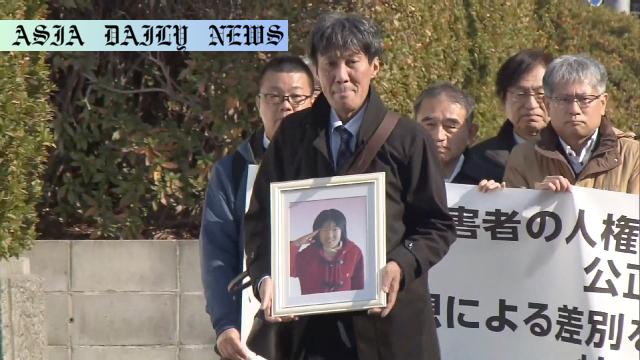High court overturns prior ruling, calculates lost wages based on full average income for girl with hearing impairment in fatal accident.
Japanese high court awards full lost earnings based on average income.
Decision overturns prior ruling considering 85% for hearing impairment.
Family sought fair evaluation after 2018 accident killed their daughter.

The Osaka High Court in Japan has issued a landmark ruling regarding the calculation of lost wages for individuals with disabilities, setting a precedent that prioritizes equality in addressing potential earnings in cases involving fatal accidents. On Monday, presiding judge Tokuoka Yumiko of the Osaka High Court reversed an earlier decision by the Osaka District Court that had assessed the lost wages of an 11-year-old girl with a hearing impairment at 85% of the average income in Japan. Instead, the court ruled that her earnings should be calculated at 100% of the national average.
The case revolves around the tragic death of Ide Ayuka, who was struck and killed by a power shovel that veered onto a sidewalk in Osaka City in 2018. Ide, a student at a school for children with hearing impairments, lost her life in an incident that deeply affected her family and sparked a legal battle over the compensation owed by the driver of the vehicle and their company.
The key dispute in the case arose over how to calculate the potential lost earnings of Ide, given her disability. The Osaka District Court initially ruled in favor of an 85% calculation, citing the notion that her hearing impairment could have potentially limited her employment opportunities and productivity. However, her family appealed this decision, arguing that such a calculation perpetuates discrimination and fails to acknowledge the equality of opportunity available to individuals, regardless of disability.
In her ruling, Judge Tokuoka emphasized the importance of equity and fairness in these calculations, noting that the court must focus on what Ide might have reasonably achieved in her life. The high court’s updated decision aligns with broader societal efforts to foster inclusivity and challenge discriminatory practices, ensuring that individuals with disabilities are not systematically undervalued.
The family’s victory represents not just a financial ruling but also a symbolic milestone in the fight for disability rights and equitable treatment under Japanese law. By recognizing Ide’s potential as equal to the national average income, the court sends an important message about valuing all individuals equally, irrespective of physical or sensory impairments.
Legal experts and disability advocates have lauded the high court’s approach, noting its consistent alignment with the principles of fairness and equality. This decision may pave the way for future cases, setting a critical precedent for how courts should address compensation related to individuals with disabilities.
Moving forward, this case is expected to influence similar lawsuits and foster more progressive interpretations of potential earnings in the judicial system. It also highlights the need for broader societal awareness about inclusivity and disability rights, extending beyond the courtroom into other facets of public life and policymaking.



Commentary
The Osaka High Court’s decision to award full average wages to the family of Ide Ayuka highlights the importance of recognizing equality in all spheres of life, including legal rulings related to compensation. This judgment sends a powerful signal that individuals with disabilities should not be inherently undervalued or dismissed due to societal biases, and it challenges long-held stereotypes about the potential of those living with impairments.
In the case of Ide, the earlier ruling that calculated her potential earnings to be 85% of the national average income was undeniably rooted in discriminatory assumptions. It reflected outdated thinking that assumes individuals with disabilities will inevitably experience diminished career prospects or economic contributions throughout their lives. By overturning this ruling, the Osaka High Court has not only rectified an injustice for Ide’s family but also set an example for future cases in Japan and beyond.
It is worth noting, however, that this decision goes beyond financial considerations. It stands as a pivotal moment in the ongoing fight for disability rights and equal treatment in judicial systems. Behind the numbers lies a fundamental principle: that every individual, regardless of their physical or sensory abilities, has the potential to contribute meaningfully to society and should not be prejudged based on factors beyond their control.
Moreover, this case underscores the importance of fostering inclusivity and challenging bias, both in legal frameworks and in society at large. While the ruling sends a positive message, it also serves as a reminder of the work still to be done in ensuring discrimination against people with disabilities is addressed comprehensively. Whether through legislation, education, or cultural shifts, achieving true equality requires vigilance and commitment from every facet of society.
In conclusion, the Osaka High Court’s decision is a resounding victory—not merely for Ide’s family, but for advocates of justice and inclusivity worldwide. It demonstrates the power of legal systems to correct wrongs and lead the way toward a more equitable future. May this case inspire further progress in disability rights, challenging us to continue building a world that values and uplifts the dignity and potential of every individual.